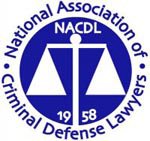Chapter 11 Reorganization Bankruptcy
NOTE: Attorney Ryan Alexander is not accepting new Chapter 11 cases in 2018.
The following is for informational purposes.
Most consumer debtors who want to reorganize do so under Chapter 13 of the Bankruptcy Code. However, many Nevadans who have invested in real estate or had large sole proprietorship businesses have debts that make them ineligible for filing Chapter 13. These limits are currently $394,725 for unsecured debt or $1,182,200 in secured debt* – it only takes a few mortgages in your name to exceed that limit. Chapter 11 has no debt limits. Also, corporations and LLC entities can only reorganize under Chapter 11.
For people who exceed those limits, and small businesses who need to take control of their accounts, Chapter 11 offer several benefits:
- Reducing mortgages down to your property’s appraised value;
- The “stay” provisions of bankruptcy make sure that your creditors cannot do anything against you without court permission (with plenty of advance notice to your attorney);
- Eliminating credit line and credit card debt (and medical debt for an individual);
- Spreading out your debt payments over a fixed period;
- Make your properties and business profitable again.
Paying Creditors What You Can Afford
Chapter 11 bankruptcy is primarily a payment plan based on the amount you can afford to repay. Chapter 11 bankruptcies, however, allow you to control much more of the bankruptcy process, including designing your own repayment plan. The Chapter 11 plan is much more flexible than a Chapter 13, which makes it more complex to prepare and more expensive to start. Chapter 11 plans for individuals will have payment plans of various lengths, but are often for a period of 60 months.
How A Chapter 11 Case Works
Most Chapter 11 debtors maintain control over their properties and business, and operate them under court supervision. Being in a Chapter 11 plan creates a special responsibility to your creditors to make sure that you are running the business to pay them back (at least what is in the approved plan). Not all cases get assigned a trustee, unlike Chapters 7 and 13. The court will appoint a trustee if things are not going smoothly, or if the case is large.
A committee of unsecured creditors is usually appointed to oversee your business operations, and to negotiate the reorganization plan on behalf of the creditors. The creditors will vote on whether to accept or reject your plan, with their vote weighted according to the size of their claim against you. Even if your creditors vote against the plan, the court can still approve the plan.
What to bring to a Chapter 11 Bankruptcy consultation:
Chapter 11 filings are more complex and preparation requires different information than a Chapter 7 or Chapter 13 petition. When we meet for an initial consultation for a Chapter 11 please prepare and bring:
- A list of your business’ main creditors, amounts owed and the terms of the debt (payments, interest, collateral, etc.);
- A list of your business’ assets;
- Balance sheet or a cash flow summary; and
- A realistic projection of your cash flow/income for the next 3 months and for the next year.
“Great advice for investment property owners.” Las Vegas Real Estate agents Todd Miller talks with attorney Ryan Alexander and discusses what options investors have in regards to foreclosure, Chapters 13 and Chapter 11. Specifically with relationship to what impact these actions have on a homeowner and how they can be helped by an attorney. Click here to watch more of Todd’s videos and learn about short sales.


